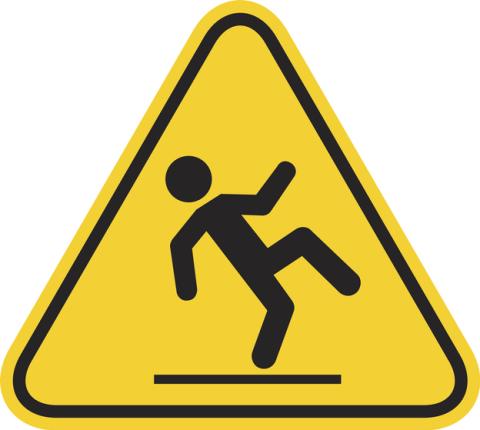Reducing the Fall Risk of a Loved One Who Has Dementia
Anyone can fall and certain conditions that are common among older adults raise the risk. Those risk factors include vision loss, hearing problems, balance disorders, arthritis, osteoporosis and the effects of a stroke. And experts tell us that having Alzheimer’s disease or other dementia is a top risk factor.
People living with the brain changes of dementia are less aware of fall risks around them. Visual perception and the sense of balance are affected. Dementia also makes it harder for a person to stop a fall that is about to happen—to grab a handrail, or steady themselves when they are off balance. Disorientation and confusion mean they might do dangerous things that they would not have done before.
If you have a loved one with dementia, it’s extra important to take steps to reduce the risk of falls. Here are things to consider; of course, you will want to talk to your loved one’s doctor about the risk of falls also.
Help your loved one remain physically active. You might think you should encourage your loved one to sit down most of the time. But inactivity leads to a loss of muscle strength and balance, which actually raises the risk of falls. Your loved one can do simple exercises at home, go for a walk with you, or even better, take part in an exercise program that’s geared for people with memory loss. Another advantage of these classes is that they provide the opportunity for socializing, which decreases another fall risk—depression.
Help with medication management. Many of the drugs seniors take can cause dizziness, drowsiness and disorientation. Some drugs may no longer be suitable if a senior has memory loss; some of the drugs prescribed for people with dementia also may have undesirable side effects. The first step is to ask your loved one’s doctor or pharmacist to review all the prescription and over-the-counter drugs they take. That includes any herbals and other supplements. Taking the right dose of medications and at the right time is vital—you may need to step in and help.
Be sure your loved one has regular eye exams and hearing checkups. Our eyes and ears provide a lot of information about the space we’re in. If your loved one wears glasses, be sure their prescription is up to date and that they’re wearing them. If they use hearing aids, talk to the hearing specialist for tips. You may need to remind your loved one to wear their hearing aids; check batteries and settings often.
Ask the doctor about the best type of shoes for your loved one. Shoes that are well fitted with good traction make it less likely that a person will fall. It’s time to put flip flops and high heels away.
Make environmental changes to reduce the risk
Dementia makes a person less aware of the space around them. They can’t adapt as well to their surroundings, so their environment needs to adapt for them. Give the home an inspection, with the top-of-mind goal of letting your loved one safely move from one place to another. Here are some things you can do:
Remove clutter, throw rugs, electrical cords in the walkway, and any other hazards that your loved one could trip over. Clean up spills promptly, and keep outdoor steps and walkways free of debris, ice and snow.
Rearrange the home to create more open space. Experts suggest removing furniture that isn’t really needed. Low coffee tables and floor lamps can be particularly hazardous because your loved one might not see them in the path.
Be sure all stairs have sturdy handrails, preferably on both sides. Mark the edges of stairs with contrasting colored tape. Never place items on the stairs. Experts suggest using a gate across stairs if it is not safe for your loved one to navigate them alone.
Improve lighting throughout the home. People with dementia are less able to interpret what they are seeing; more light helps. Removing mirrors helps prevent confusion, as well.
Put the things your loved one uses within reach so they will not need to use a step stool.
Pad sharp corners of furniture to reduce the risk of injury if your loved one were to fall against these items.
Improve bathroom safety with grab bars and nonslip decals in bathtub or shower.
Install locks on doors if it is no longer safe for your loved one to leave the home alone. Unfamiliar places present far greater risk of falling.
A fall can result in a rapid decline in the condition of a person with Alzheimer’s. If they fracture a hip or other bone, care and recovery can be difficult. So prevention is key. Ask your loved one’s doctor for advice. Talk to an aging life care professional (geriatric care manager) about resources that could help. Be sure your loved one is living in a safe environment. As your loved one’s condition progresses, it may be time for adult day care, in-home care or a supportive senior living community.
